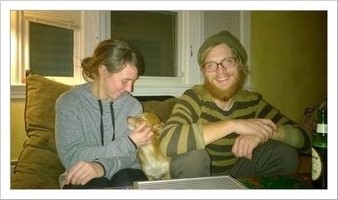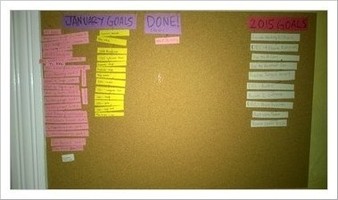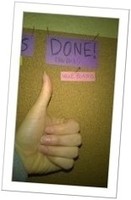Sprint 1: New Years & Project Management - Make Board
 January 1, 2015
by
Leslie Anderson
January 1, 2015
by
Leslie Anderson
“The secret of getting ahead is getting started. The secret of getting started is breaking your complex overwhelming tasks into small manageable tasks, and then starting on the first one.”
— Mark Twain
Our wonderful friends, Garett and Lauren, visited for New Year’s Eve. It’s become a tradition; all of us want something low key after the holiday rush. Most of our evening was spent playing Blokus and watching Drop Dead Gorgeous.
And lo, 2015 began. Not with a bang, but with a diligent and quiet brainstorming session. And a few corkboards.
We came up with our year goals, then decided what first steps we needed to take, assigned them, and put them on the board. One important aspect of this is the “done” category. There are few things more satisfying than seeing what all you’ve finished.
At the end of the month we’ll assess how we did on our goals. Did we finish them all? In not, why? Then we’ll come up with a new set of goals based on what we accomplished and what we learned. Repeat this twelve times, and we’ll have had a successful year.
Bonus: Keep your “done” slips at the end of the month and put them in a container. At the end of the year, dump them all onto the floor and roll around in them. Too much?






